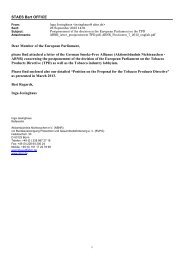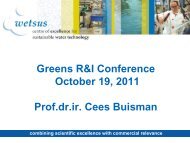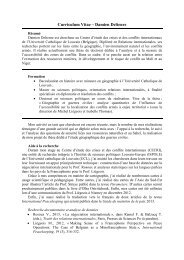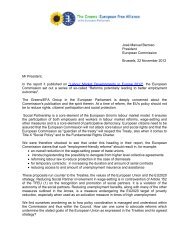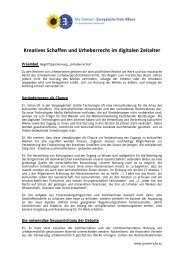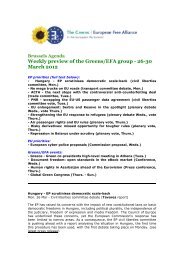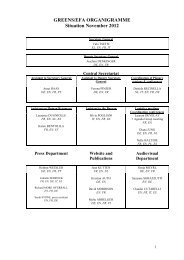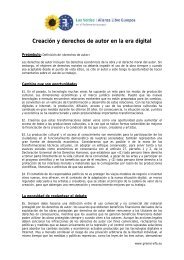Agro-Biotechnology: - The Greens | European Free Alliance
Agro-Biotechnology: - The Greens | European Free Alliance
Agro-Biotechnology: - The Greens | European Free Alliance
Create successful ePaper yourself
Turn your PDF publications into a flip-book with our unique Google optimized e-Paper software.
in detail, EFSA acknowledges adverse effects in cloned animals and surrogate<br />
dams:<br />
“<strong>The</strong> welfare of both the surrogate dam and a significant proportion of clones<br />
has been found to be affected by the adverse health outcomes observed.”<br />
But EFSA (2008) does not draw the conclusion that this should be considered<br />
unacceptable. In its opinion in 2009 in particular, EFSA puts some weight on<br />
reports indicating an increasing rate of success. In their conclusion, the EFSA<br />
experts even raise expectations that the success rate might be enhanced<br />
further, thus reducing animal welfare problems:<br />
“If the success rate of the epigenetic reprogramming is improved it is likely<br />
that the pathologies and mortalities observed in a proportion of clones would<br />
decrease.”<br />
Expectations of this kind are not based on sufficient scientific evidence. <strong>The</strong>re<br />
is no doubt that the success rate of cloning in some animal species has<br />
increased since the sheep Dolly was born. But a high rate in animal losses,<br />
LOS related symptoms and other effects still occur according to all the studies<br />
published, and the causes behind these problems have still not been sufficiently<br />
determined. Furthermore, the success rate in cloning still differs significantly<br />
from case to case. As explained, differences in the technical protocol, the<br />
source and the status of the biological material influence the result of SCNT<br />
as well as technical skills. Reports on higher success rates by some experts<br />
working with distinct technical protocols and selected species cannot in any<br />
way be seen as representative for the overall success rate of the cloning of<br />
farm animals. EFSA's expectation (2009) can be seen as reflecting the perspective<br />
of those companies or institutions interested in achieving further technical<br />
progress, but it cannot be taken as a conclusion based on sufficient scientific<br />
evidence.<br />
Technical problems | Cloned farm animals - a ‚killing application‘? | 21



